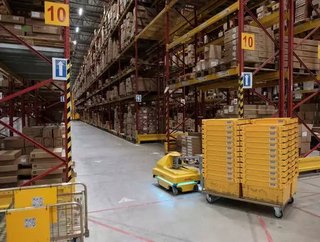DHL: accelerating its digitalisation drive

The leading logistics firm, DHL, is set to continue to invest in its digitalisation initiatives through until 2025.
Cost challenges are a serious concern for many online retailers and logistics partners, particularly in fulfillment and last mile delivery operations. Following its latest white paper, the company has revealed it is set to invest at least $2.2bn in digitalisation and automation in the supply chain through until 2025.
The white paper, “Change at the Speed of the Consumer: How E-Commerce is Accelerating Logistics Innovations,” looks at several principal areas where e-commerce is challenging the supply chain.
These are:
-
The challenging of the supply chains of merchants and logistics companies. customer expectations.
-
The customer expectations for a perfect buying experience.
-
The consumer’s desire to buy and receive goods anywhere, anytime.
-
Exploding demand for urban delivery.
-
Competition for labor and wage inflation.
-
The emergence of new online sales models.
-
The unexpected surges in demand.
-
Environmental concerns.
SEE ALSO:
Digitalisation is already helping to support better demand forecasting and enabling inventory to be well-positioned to the end customer, optimise transport routings and decrease time on the road. With technology set to evolve further with new innovations coming to the market over the coming years, companies able to deploy them effectively within their supply chain will be best positioned to address the costly inefficiencies, volatile order trends and demanding customer expectations that demonstrate the competitive e-commerce market.
“The insights from this new white paper show that profitability is still a major challenge for many e-commerce companies, despite - or often actually because of - the dynamic growth of the sector. It also gives our customers a comprehensive overview of the specific areas where that challenge is most prevalent, and which technologies currently offer the most potential to support them,” said Ken Allen, CEO, DHL eCommerce Solutions. “DHL's innovation approach is targeted at identifying, piloting and deploying across our global network the most effective technologies and solutions in each of these areas. We will continue to actively expand robotics and automation across many parts of our operations, for example, and we see artificial intelligence becoming an enabler throughout our business in the future.”
To read the full white paper, click here!
For more information on all topics for Procurement, Supply Chain & Logistics - please take a look at the latest edition of Supply Chain Digital magazine.






